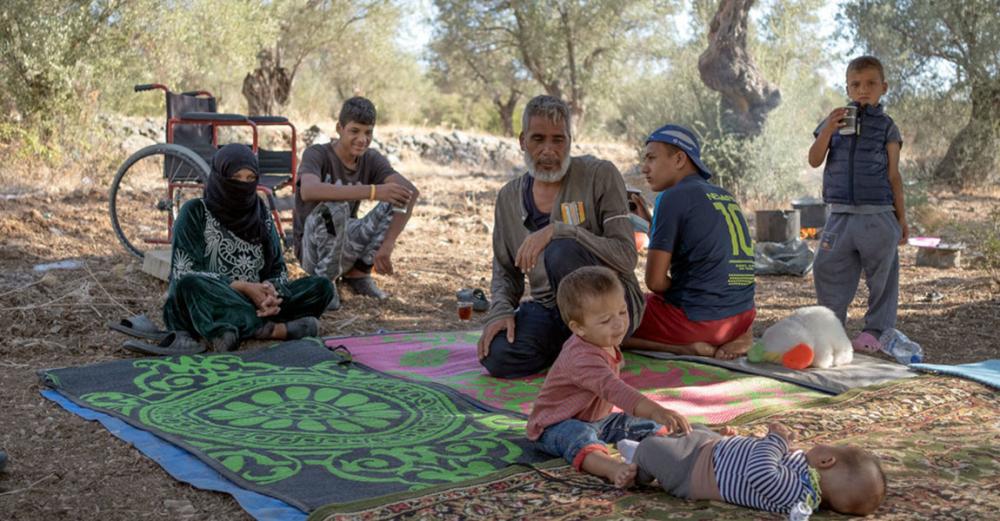Just Earth News | @justearthnews | 01 Oct 2020, 09:56 pm Print

New York: Nearly 140 asylum seekers were relocated from Greece to Germany on Wednesday through a European Commission-funded initiative that has relocated more than 1,000 people so far this year alone, three UN agencies have reported.
The group included families with children with special health needs, and more than 50 unaccompanied children, most of whom had been transferred to the Greek mainland after multiple fires destroyed the Moria reception and identification center, located on the island of Lesvos, three weeks ago.
“We feel grateful for the people that helped us in Greece and we’ll never forget them. We don’t speak German, but we’ll try hard to learn the language. My brothers live in Germany and I’m excited that I’ll see them again after such a long time”, said Lina Hussein from Syria, who travelled with her husband and two sons.
Sharing the responsibility
The Hussein family flew to Germany on the 16th flight organized by the International Organization for Migration (IOM), the UN refugee agency, UNHCR, and the UN Children’s Fund (UNICEF), in cooperation with the Greek government through the Special Secretary for the Protection of Unaccompanied Children, and in close collaboration with the European Asylum Support Office (EASO).
Since the Moria fires, the UN agencies have worked together with the European Commission – the executive branch of the European Union (EU) - and the Greek authorities, to move 724 unaccompanied children from the islands to the mainland in anticipation of their relocation to other European states.
They said the relocation initiative, which started last April, has proven to be a workable act of responsibility sharing.
“This milestone is a remarkable testament that cooperation among partners can change the lives of children and other vulnerable people for the better”, said Ola Henrikson, IOM Regional Director.
“Despite the challenges of the COVID-19 pandemic, relocation flights are happening almost every week. We hope this momentum is sustained and expanded, with more European States participating soon.”
Help during hardship
The UN partners were also encouraged that other EU Member States have welcomed additional asylum seekers and recognized refugees from Greece at a time of heightened hardship.
A total of 1,066 asylum seekers have been relocated from Greece to Belgium, Finland, France, Germany, Ireland, Luxembourg and Portugal, so far this year.
“Following many calls for enhanced responsibility-sharing in Europe and the particular need to relocate unaccompanied children and other vulnerable people from Greece, we are very pleased to see this taking concrete shape and gradually expanding”, said Pascale Moreau, UNHCR Director for Europe.
“We are grateful to the countries concerned and hope that more countries follow this positive example and demonstrate their solidarity with Greece.”
The right to be safe
Currently, there are nearly 4,400 unaccompanied and separated children in Greece in urgent need of lasting solutions, such as expedited registration, family reunion and relocation.
Over 1,000 are exposed to severe risks, including exploitation and violence, and precarious conditions in urban centres, the UN agencies warned.
“The relocations of unaccompanied minors and other vulnerable children continue to be an important part of protecting the rights of refugee and migrant children”, said Afshan Khan, UNICEF Regional Director for Europe and Central Asia, and Special Coordinator for the Refugee and Migrant Response in Europe.
“These children, many of whom have fled abject poverty and conflict, have the right to be safe and develop to their full potential."
- Viral Irish food bank photo sparks shocking racist attacks on Indians
- Caught on camera: Two foreigners assaulted in Israel in an alleged racial attack
- Pakistan: Parents heartbroken after court sides with man accused of kidnapping minor Christian girl
- Pakistan: Trafficked 35 years ago, Bangladesh-born woman approaches court against FIA for offloading her from flight!
- Hindu tea worker found bound and bloodied in Bangladesh garden during general elections; investigation underway





-1763561110.jpg)
